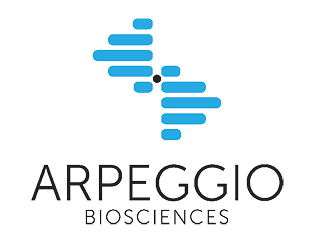
Joey Azofeifa (left), 2017 IQ Biology PhD graduate, and his mentor, Robin Dowell, see a bright future using computational biology to solve bioscience challenges.
Joey Azofeifa came to CU Boulder looking for a challenge. While he applied to many top notch biology programs, the IQ Biology Program spoke to him as the only place he could challenge himself and gain new perspective by delving into a completely new field—computational biology. “IQ Biology brings people in from diverse backgrounds and invests in them. They really took a chance on me and bridged across departments to train me and get me where I wanted to go,” says Joey.
The chance paid off, as Joey threw himself into computational studies and interdisciplinary research that bridged genomics and machine learning in ways that had never been done before. With their innovative approach, they transformed a sea of previously undecipherable genomic data into a goldmine of crucial information for drug development.
Choosing Robin Dowell as his mentor, Joey emulated her interdisciplinary research style. “Robin really embodies interdisciplinary science. She asks her own questions, not what the field dictates. She combines disciplines in novel and interesting ways that open up new directions in bioscience. That’s the kind of scientist I wanted to be,” says Joey. Robin gave Joey the freedom to explore his own path under her tutelage, which took him to the fringes of bioscience knowledge. “By combining fields I pushed myself so far out into the frontier that there wasn’t anyone else out there to help me. I grew a lot because I had to figure it out on my own. That’s the biggest challenge of interdisciplinary science,” says Joey.
Joey credits his peers in the IQ Biology community for helping him develop the mental fortitude, courage and persistence required to navigate the unknown and work through challenges to succeed as an interdisciplinary scientist. This intrepid crew from diverse backgrounds bonded over tackling unexplored intersections of science together. Working side by side, they developed the essential communication skills to bridge disciplines that will serve them throughout their careers.
Joey partnered with Tim Read, his roommate, who was a wet lab biologist PhD candidate also in Robin’s lab. As yin and yang, the duo built off each other’s vastly different knowledge to forge a new frontier in RNA biology. Examining genomic read-outs called enhancer RNA (eRNA), Tim honed state-of-the-art RNA sequencing assays while Joey built the mathematical modeling and machine learning tools required to decipher the genomic data. Their combined approach brought new perspective to the field. “Before we came along the field was dominated by geneticists, so it was easy for us to make a big impact with new computational tools. The payoff was huge,” says Joey. With their innovative approach, they transformed a sea of previously undecipherable genomic data into a goldmine of crucial information for drug development.
Specifically, their platform pinpoints a drug’s mechanism of action by distinguishing primary drug targets from aftereffects that can obscure the message. This is priceless information for pharmaceutical companies, which waste millions of dollars and years of R&D on drug candidates that ultimately fail due to misunderstood mechanisms.
The new insights afforded by Joey’s work will help companies choose the right drug candidates to pursue, and which diseases and patient populations to target for success. Overall the platform will accelerate the development of better drugs with fewer side effects at a fraction of the cost. And so, Arpeggio Biosciences was born. The name resonated with Joey and Tim as musicians: “The eRNA signatures we decipher are like discrete ordered chords that run through the genome and flesh it out. It is the profile, not a single note, that says something interesting,” says Joey. Arpeggio truly symbolizes the IQ Biology spirit, Joey explains, because its value lies in the combined approach of employing mathematical tools to derive meaning from biological data.
They teamed with Daniel Weaver, Boulder scientist and inventor, whose business expertise and connections helped to make their vision a reality. Arpeggio will tackle its first real world oncology pipeline this year with FORMA Therapeutics. Focusing first on cancer drugs, Arpeggio is poised to solve diverse bioscience challenges with its highly adaptable platform. Working from both biological and computational sides gives Arpeggio the dynamic flexibility and nimble approach that sets them up for success in today’s rapidly changing research and technology landscape.
 Joey suggests Arpeggio may be particularly insightful against infectious disease, and BioFrontiers may provide a crucial partner in this arena with faculty member Bob Garcea, virology expert and co-founder of the vaccine development company, VitraVax, Inc. Such collaborations will come easily as Arpeggio moves into the new BioFrontiers Hub space, strengthening its bond with the CU community that spawned it. The Hub space will provide the community and resources Arpeggio needs to thrive as a new start-up. With established laboratory equipment and computational services, Arpeggio will hit the ground running in their new, yet familiar, home. “BioFrontiers has been my home for the last 7 years. It’s where this journey began, and it only feels right to continue to grow here among our CU friends and family,” says Joey.
Joey suggests Arpeggio may be particularly insightful against infectious disease, and BioFrontiers may provide a crucial partner in this arena with faculty member Bob Garcea, virology expert and co-founder of the vaccine development company, VitraVax, Inc. Such collaborations will come easily as Arpeggio moves into the new BioFrontiers Hub space, strengthening its bond with the CU community that spawned it. The Hub space will provide the community and resources Arpeggio needs to thrive as a new start-up. With established laboratory equipment and computational services, Arpeggio will hit the ground running in their new, yet familiar, home. “BioFrontiers has been my home for the last 7 years. It’s where this journey began, and it only feels right to continue to grow here among our CU friends and family,” says Joey.
